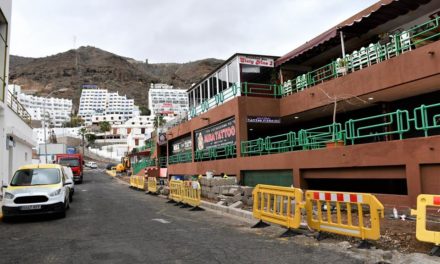Spain’s Ministry of Health say they have identified nine cases of the Río de Janeiro coronavirus variant in the archipelago and continue to monitor three cases with the British strain over recent weeks, according to data published on Monday.
 The Canary Islands currently has the lowest 14-day Accumulated Incidence of any region in Spain, standing at just under 109/100,000 population cases detected, compared with the overall national average of more than 250/100,000. Overall The Canary Islands has been one of the best performing regions in Europe for keeping infection rates low and controlling outbreaks, with the data continuing to look positive for the archipelago as we head towards Spring.For the latest Canary Islands data on COVID-19, updated every day, you can check our Mobile updates here, or for a more feature rich experience try our Desktop device Dashboard here
The Canary Islands currently has the lowest 14-day Accumulated Incidence of any region in Spain, standing at just under 109/100,000 population cases detected, compared with the overall national average of more than 250/100,000. Overall The Canary Islands has been one of the best performing regions in Europe for keeping infection rates low and controlling outbreaks, with the data continuing to look positive for the archipelago as we head towards Spring.For the latest Canary Islands data on COVID-19, updated every day, you can check our Mobile updates here, or for a more feature rich experience try our Desktop device Dashboard hereThere are currently seven variants of the coronavirus of serious interest to Spain’s Health Department, headed by Minister Carolina Darias, for which special monitoring is underway due to their being more virulent (causing more serious disease or greater mortality) or because the vaccine could be less effective against them.
According to data from a new report published this Monday, 916 positives from these new strains have been confirmed to date throughout the national territory.
Currently, according to the health authorities, the most significant concerns are B.1.1.7 (British), B.1.351 (South African) and P.1 (Brazilian). However, in their ‘Report on the epidemiological situation of variant B.1.1.7 of SARS-CoV-2 and other variants of interest‘, the Health Ministry also included two other variants besides those from the United Kingdom, one from California and one first detected in Río de Janeiro.
According to Ministry’s data, so far 898 cases of the British variant have been confirmed (alongside another 183 from unofficial sources, not yet confirmed), 6 from the South African strain, 1 from the Brazilian (plus two from unofficial sources) and 11 from the from Río de Janeiro (two of them in travellers diagnosed in Madrid and the other 9 here in the Canary Islands, for which no epidemiological data is yet available).
Likewise, a second British strain B.1.525 was identified in January this year, first detected in the United Kingdom, apparently similar to the South African strain, and has also been found in Denmark, the Netherlands, Norway, the United States and Canada.
The Health Ministry has said that the British variant “is highly variable from one community to another, and the data indicate a rapid increase in its distribution over recent weeks.”
Of the total of 898 positives for the British B.1.1.7 only been three cases have so far been detected in The Canary Islands.

Spanish Ministry of Health latest situation data as of February 23 2021















